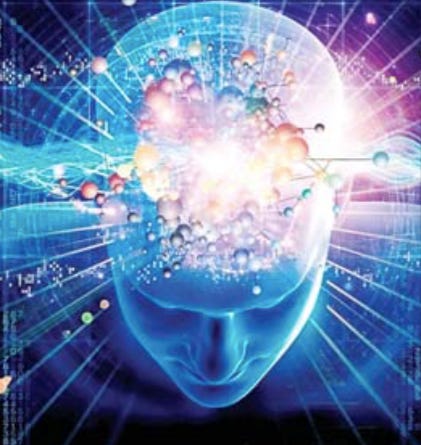How to train the mind to remain open and expansive
The East encouraged people to train the mind to remain open and expansive…whereas education in the west, whether secular, scientific, or religious, generally has the tendency to either bully or enslave minds with fear of bias. Western education generally does not invest time to develop great wise ethical teachers. It does not invest the state’s resources or energy to guide minds how to connect to the inner instinct, how to do critical thinking based on logic and discernment, and how to observe the world around using perception and not judgment. The teaching of civil sense and how to live in society and promote harmony has been demolished from the curriculum.
The Repertoire of The Mind
In our journey through mental and emotional unsettledness, we choose the harness for our mind. We have only the choices that we are trained to use. Either unwittingly our parents or culture have decided on its shape and form, or with conscious choice we have chosen something suited for our mind’s abilities, our body’s comforts, our heart’s dreams, and our soul’s needs. That harness either allows our mind to fly freely, or it contains us but restricts us both from falling but also from flying.
The brain-mind has a vast repertoire of potential functions. It has the potential to self-correct from mental imbalance. Your life and mental health depend on which of those functions you trained to use and which you are still capable of learning. This is what a loving parent gives us in childhood.
Most academic disciplines in the west such as psychology, philosophy, and neuroscience fail to teach us how to train the mind. They fail to validate the vast abilities of the mind because they find discomfort with the nearby slippery slope of religion. The Christians claimed jurisdiction over the western mind from the time of Descartes (1596-1650). A movement called positivism cleverly demanded that the mind should only believe information that was derived logically from existing decisions and mathematical proofs. Infinity was undefinable by their mathematics and gifted to the church. The limited, bounded possibilities allowed people to define their abilities, their creativity and their powers.
Academia still uses these rigid constructs of non-spiritual disciplines that prevent mastery of our immense potential. Even most therapeutic disciplines in modern medicine do not emphasize how to openly understand then train the mind. They dance around the central purpose of making the mind the sharpest tool it can be.
The potential of the mind unfolds into those tangible super-performance outcomes that modern medicine defines, … only when we remove the boundaries imposed by western sciences. To do this, we must start at the beginning and simplify our observation of the world.
When religion has claimed jurisdiction over this beginning of the mind for 2000+ years, we can understand why there is a problem in mental health today.
Frameworks for understanding the mind that do not fear religion, neither needing it nor rejecting it, are powerful. They do not widely occur in the West because religions have bullied and enslaved minds, understanding the power of capturing it in its open phase. Instead, the East encouraged people to train the mind to remain open and expansive. It began harnessing potential by creating a permanent infrastructure that pursues truth. This allows no malefic forces to enslave it. This is the ultimate positioning of the mind.
The mind can be guided from a young age, but really from any age, to dream, and to be still. It becomes an antennae that reaches into an unknown space that is also familiar. This ethereal, non-tangible space is the world named mahad by the ancients. It represented an electrical space in which the memory of travel of each electron was a deep repository of knowledge, much the way a computer hard drive is just a collection of electrons. The signal that allowed access to the memory was the consciousness (chitta). The mind can develop to have an unlimited capacity for attention, focus and intake (bud-dhi); understanding and processing data and turning it into networks of information (dhrti); and recalling things at will, known as memory (smrti).
All it requires is that you begin to perceive Truth at all costs. Many of us have spent so long around untrue people that we may feel we have forgotten what Truth is. First, you must watch yourself. Decide whether your own actions are aligned with truth. You get the privilege to watch others’ actions and perceive whether they feel truthful. Are your words truthful at all times? In the words of the Toltec wisdom of don Miguel Ruiz, are you impeccable with your word in each and every thing you say? Do you notice that the people around you who you respect most live and act in Truth? Where are people sincere and truthful? Where are they embellishing, exaggerating, lying?
In the first week, simply monitor your ability or inability to see Truth. If you do not know the facts, just reach inside your heart and feel whether the person is True. Align yourself with this one aspect. Next week, we will take the next step.
wk13. TheSouthAsianTimes
Obtain a pdf version of this column by clicking on the following image:
Dr. Bhaswati Bhattacharya is a Fulbright Specialist 2018‐2023 in Public Health. She serves as Clinical Asst Professor of Family Medicine in the Department of Medicine at Weill Cornell Medical College in New York, NY. Her bestselling book Everyday Ayurveda is published by Penguin Random House. To order an autographed copy, write to bhaswati@post.harvard.edu .





